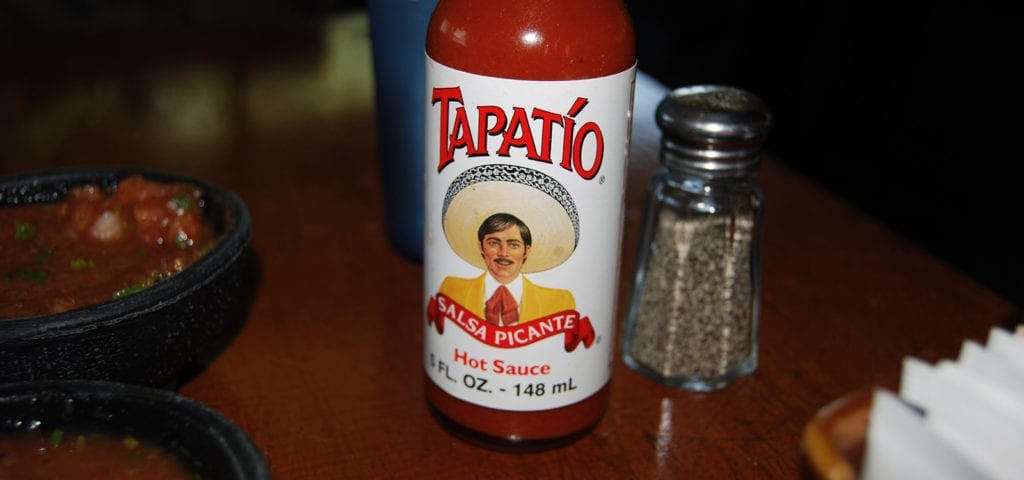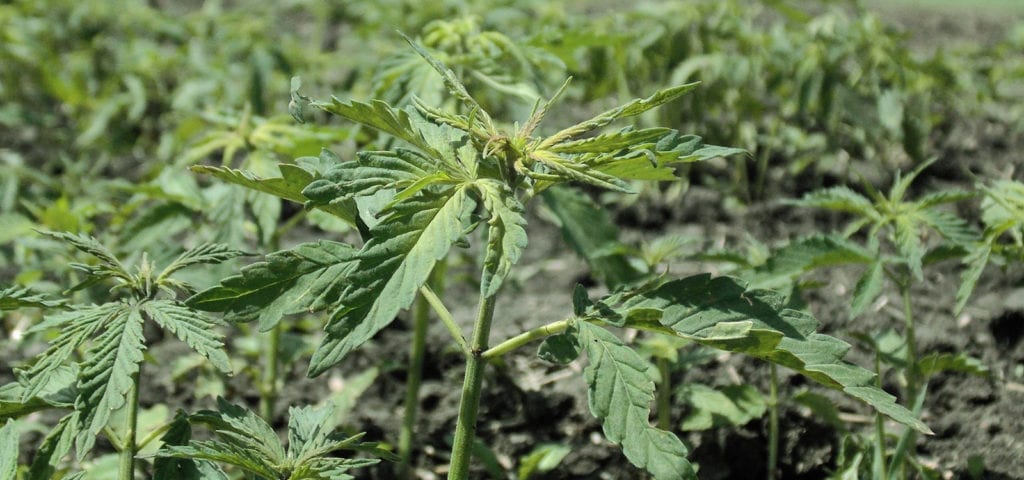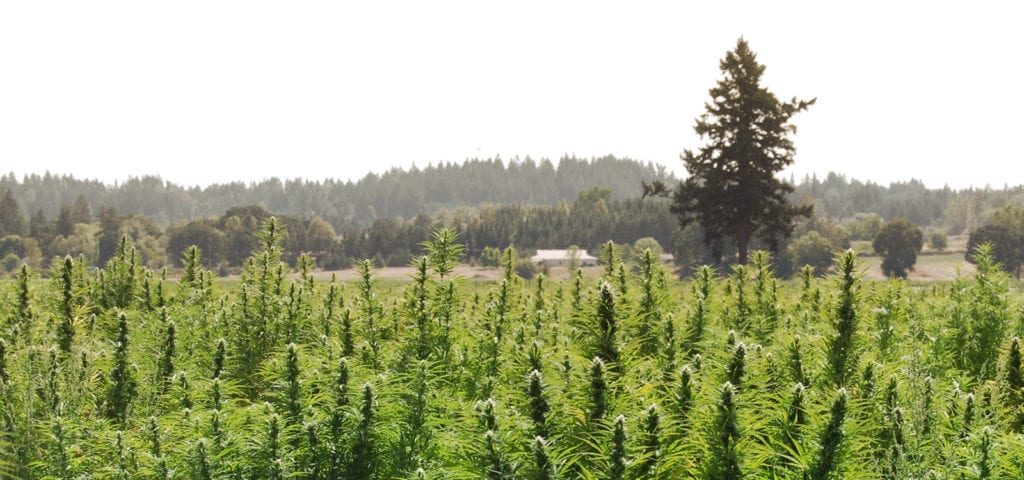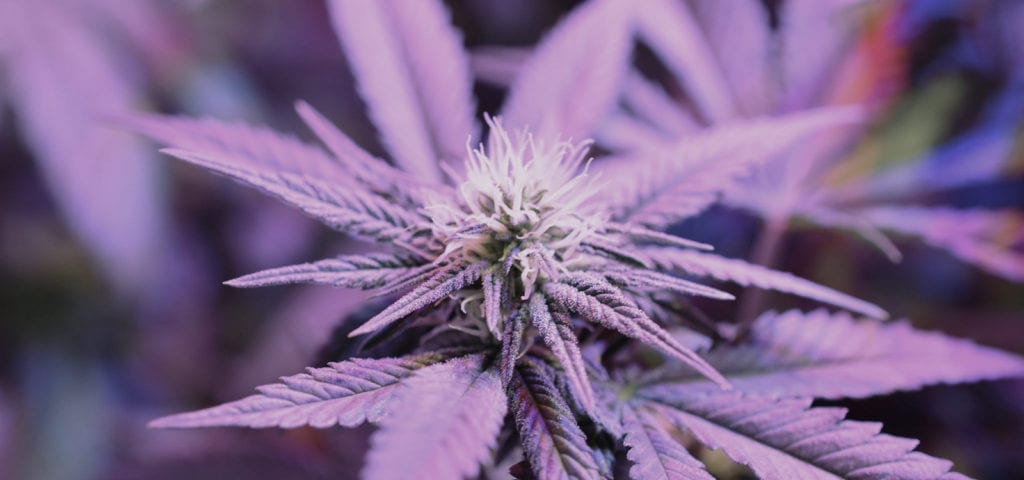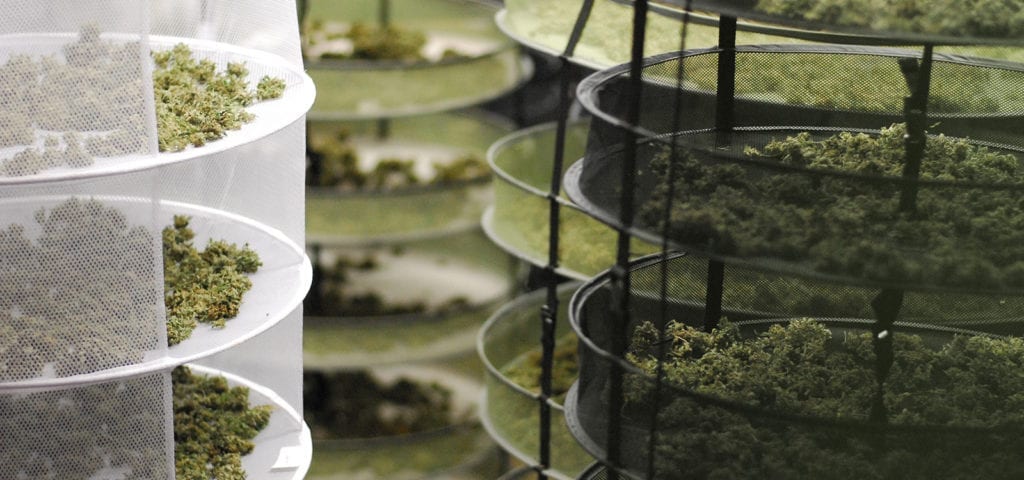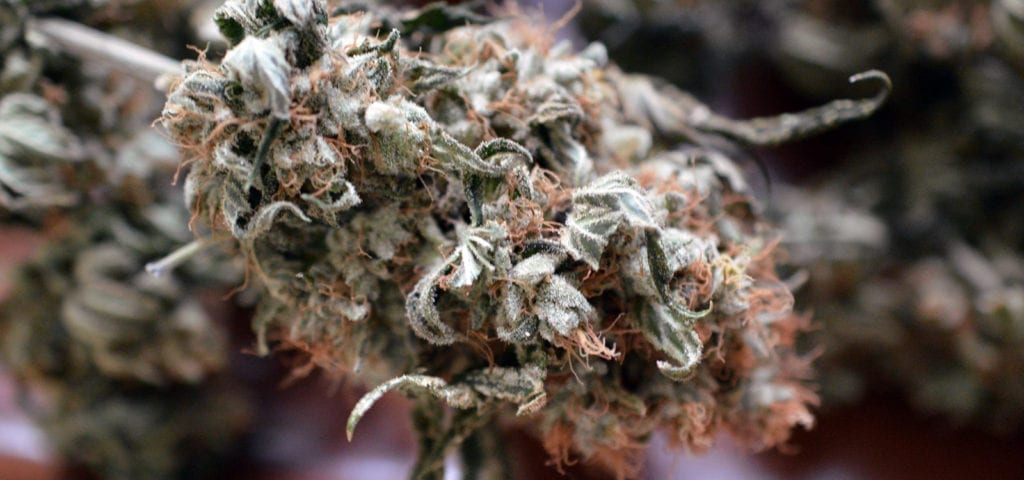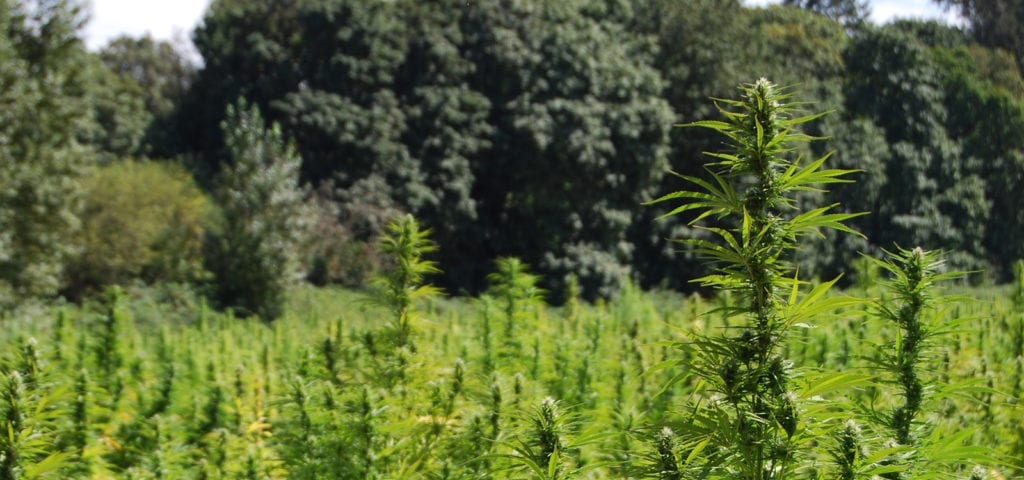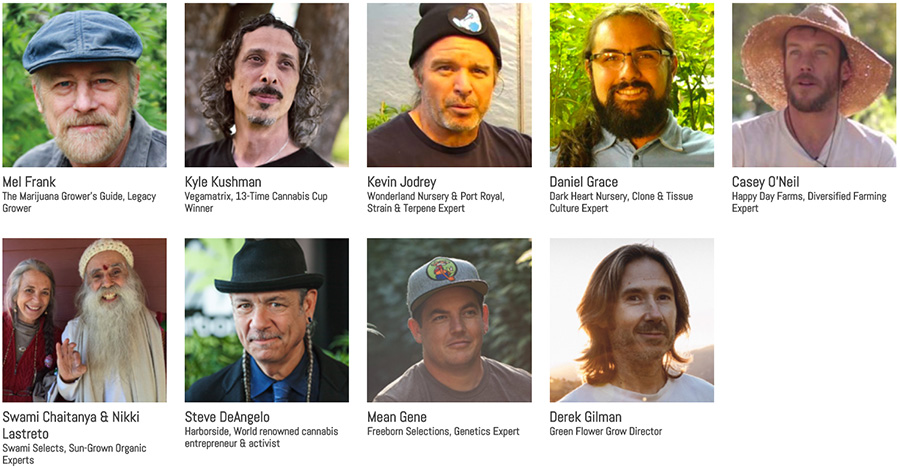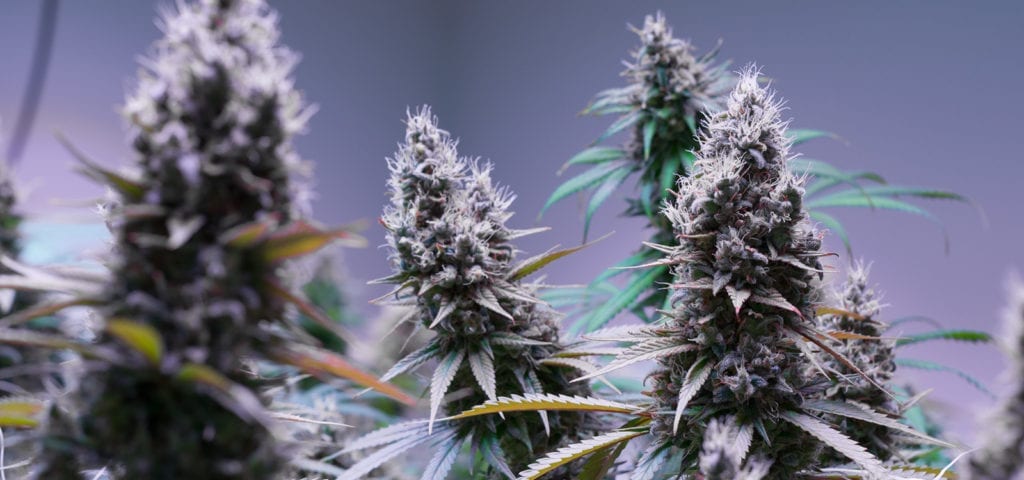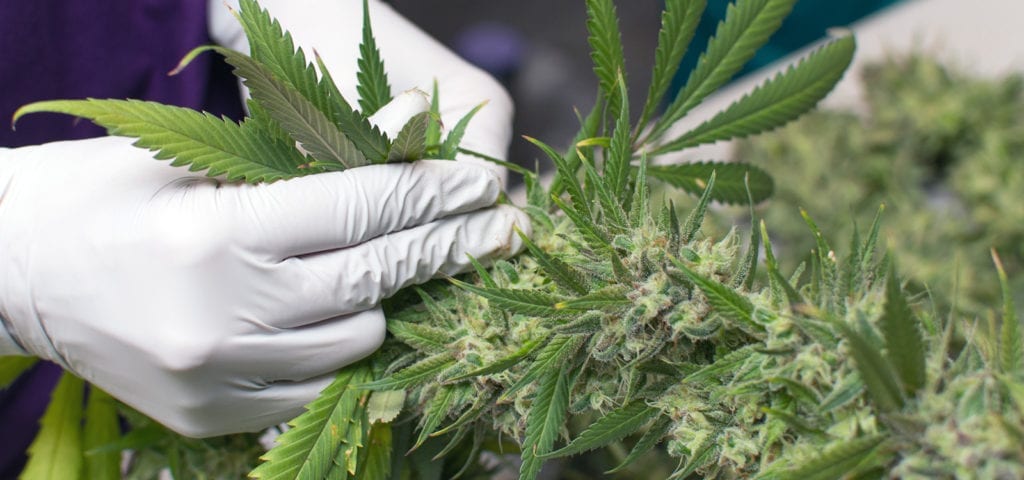Molly Peckler is the creator of Highly Devoted, a matchmaking service for cannabis professionals.
In this episode of the Spark the Conversation podcast, Molly joins podcast host Bianca Green for a conversation at the 2017 Emerald Exchange in August. In this interview, Molly and Bianca discuss the founding of Highly Devoted — which began as a matchmaking service for cannabis professionals — and how it has evolved over time from a romantic matchmaking service to include corporate matchmaking, design consulting, and more for the cannabis space. They also discuss the importance of prioritizing social responsibility in the industry, the dwindling cannabis stigma, how education helps spread the normalization process, and more!
Listen to the interview through the player below, or continue scrolling down for a full transcript of this Spark the Conversation podcast episode.
Listen to the podcast:
Read the transcript:
Bianca Green: Hi, this is Bianca Green, the host of the Spark the Conversation podcast sponsored by Ganjapreneur. I’m here today at the Emerald Exchange in Thousand Oaks, California, with my girlfriend Molly Peckler of Highly Devoted. Molly and I met through a girlfriend of mine in DC named Gail who is a official badass and a really good friend and a cannabis warrior who has a son who suffers from seizures. She came out of the closet in Maine long before other people did.
She felt I had to know Molly, because Molly was relocating from Chicago to Los Angeles. We met and her career has just been taking off. We’re going to sit down today and talk about where she’s at with Highly Devoted, which originally was an opportunity for couples to meet through cannabis and now it’s turned into an HR situation. I’m really excited to get this conversation happening.
Molly, thank you so much for being here in the House of Green sparking the conversation with me. How are you?
Molly Peckler: I’m doing great. Thank you so much for having me here Bianca. I am always happy to hang out with you and chat with you about all things cannabis. I love the Emerald Exchange. It’s one of my favorite events. I’ve been looking forward to this for a long time.
Bianca Green: A lot of people have. I think it’s a really great mix of northern and southern cultures. The vibes are really cool.
Molly Peckler: It is. I think it’s also a great event because it’s not a massive amount of people. There’s a ton of people here and some really incredible entrepreneurs and influencers within cannabis, but it’s not overwhelming. It’s not like it’s wall to wall people. Sometimes when I’m in a large space with a lot of people I get a little anxious and I don’t get that feeling at all here.
Bianca Green: It’s really great. I’m really excited about where the direction of your business is going. I know when I originally met you that you were super focused on relationships and couples and it’s evolved. Why don’t you tell our listeners how you got into the cannabis industry and where you started and where you’ve evolved to with Highly Devoted?
Molly Peckler: Absolutely.
Bianca Green: After taking a hit.
Molly Peckler: After I take my hit. I originally got into the cannabis industry in 2014. I started working for a consulting firm that helped people get licenses in emerging markets. Before I did that I was a millionaire matchmaker. I helped very wealthy individuals find love. That was something that I really excelled at and got a lot of people married and there are lots of babies out there.
It was very fulfilling in a lot of ways, but I was dying to get in the cannabis industry because it’s always been a huge part of my life and a huge part of my relationship with my husband. He’s my inspiration for literally everything I do with my business because we’ve been in love for 12 years now. The first time I met him he was smoking a bong. We really connected at first over cannabis before we even kissed. We would spend hours just smoking and talking and getting to know each other, laying that foundation.
I noticed that there was a lot of stigma associated with cannabis. Like you, people don’t look at me necessarily and say, “This girl, she smokes a lot of weed.” I’m not your prototypical stoner. I’m motivated and smart and I present myself I think in a professional way. Cannabis is my substance of choice. It really allows me to be the best version of myself. I know how powerful it is for connecting with people. That’s where I came up with the idea for Highly Devoted, which is my business.
Bianca Green: It’s a really fantastic concept because I do know that people connect with cannabis that don’t otherwise vibrate in the same circles let’s say. Cannabis brings so many unique types of people together.
Molly Peckler: It does. It’s that feeling that you get when you meet someone and you have a smoke sesh with them and automatically you’re comfortable. There’s that bond that’s there and it’s very easy.
Bianca Green: Did we just become best friends?
Molly Peckler: I know, we might.
Bianca Green: It’s totally like stepbrothers, always, when we share a joint with somebody. It’s great.
Molly Peckler: It is. There’s no other substance that is like that. You look at alcohol, I think when people drink a lot it can have a really negative effect on your life. Obviously, alcohol can literally poison your body. People die from alcohol every day. No one has ever died from cannabis. You can’t overdose on it. Obviously everything in moderation. You have to do what’s right for you. You don’t want cannabis to take away from whatever you’re trying to achieve in your life, but as long as it-
Bianca Green: That can happen with anything.
Molly Peckler: Anything, any substance.
Bianca Green: It happens all the time with medications.
Molly Peckler: Yeah. I think it’s something that if you are mindful about it and you do it with intention then it really can have a positive effect on your life. With Highly Devoted, I focus on helping people to not only find love with another cannabis consumer, because it is challenging when you’re dating because that makes your dating search even more complicated because for a lot of people who don’t know cannabis it can be a deal breaker.
They say, “I don’t want to date a stoner.” They think that everyone who smokes weed sits on the couch and just eats Doritos, whereas I understand that there are a lot of incredible smart passionate people out there who use cannabis. They want that to be reflected in their relationship and they don’t want to feel like they have to hide that from someone.
I am a matchmaker. I have a database of white collar cannabis consumers from around the country and around the world. When I work with a client we focus on figuring out exactly what they’re looking for in a partner, getting down to your granular details of what are their core values and what’s your ideal relationship dynamic and what are your shared passions and how do you want cannabis to be reflected in your relationship. Then I find clients an ideal partner, whether that’s in my database or I’ll go out and ask my network or go recruit for a specific client’s match.
Bianca Green: That’s really time-consuming. It’s such a valuable service that you’re offering people.
Molly Peckler: Especially for people who are burnt out on the dating apps and online dating where you meet a lot of people and you waste a lot of time and money and energy. I’m actually there to do the due diligence for you. I interview and meet with everyone who I’m going to potentially introduce to my clients. I see if, I think, in my expert opinion, are they a good fit in terms of all the parameters of the search. I’ve expanded my services now to include coaching for people who are interested in getting involved in the cannabis industry.
Bianca Green: That is a huge service that is needed. That’s amazing.
Molly Peckler: It’s something where I’ve been able to, on a very small budget, make myself an influencer in this community and a respected voice who people come to. That has just been through building relationships and networking in the right way and going to the right events and finding the right partners.
I educate people who are interested in getting into this industry. It’s the fastest growing industry in the country. It’s incredibly lucrative, it’s the green rush. Helping people, not the people who are just like, “I want to make money.” I work with people who are really focused on making a difference, because yes, we can all make money and do great things, but it’s all about moving this movement forward and allowing everyone who needs it to get access to this plant.
Bianca Green: Are you finding a lot of people that are making that a priority? I meet a lot of entrepreneurs that are coming in that have all different types of reasons for wanting to get into the industry. Is it easier or more difficult for you to find people who really have intentions and are putting their money where their mouth is, with social responsibility and making a difference?
Molly Peckler: It can be a bit challenging to find those people, but the way that they have come out of the woodwork for me is by me telling my story, by me opening up and sharing why I’m in this industry and why it means so much to me. A lot of times that resonates with people. They see, “I’m really interested in getting involved in this. I’m passionate about cannabis, but I just don’t know where to start.”
I give people that very basic education and figuring out, “If you want to focus on a particular vertical how do you differentiate yourself from everyone else? Are you looking to do fundraising? I can introduce you to people who can help with that. Which conference should you go to? How should you be branding yourself? How can you-“
Bianca Green: You’re doing consulting too?
Molly Peckler: Yeah.
Bianca Green: Which is a valuable service.
Molly Peckler: I feel like I have a very unique point of view. This is something that I live and breathe. I wake up every morning and I jump out of bed so excited to get this message across and change hearts and minds. I’m totally inspired by people like you who have been in the trenches on the front line. I certainly am nowhere near where you are, but I still think that what I’m bringing to the table is a different perspective that people haven’t really focused on much yet.
Bianca Green: It’s not any one person that can do anything. I think that every person that’s in this industry, every consumer that uses cannabis and benefits from it needs to be responsible for the freedom of the plant. It’s novel, it’s wonderful, it’s a big idea, that you are putting it in your mission, essentially, that you work with people that are consistent with making sure that they’re in alignment with the wellness of this industry.
Because it is, there are all different types of people coming in. It’s hard to tell who’s here for the right reasons. I feel like the plant is discerning. It’s not going to just let anybody. I also feel like access to it, the more access people have we will raise the vibrations. It’ll go from there. Every step we take, it goes here …
It starts somewhere and it takes steps forward, but we can also take a lot of steps back if the people that are in the industry currently aren’t being more, advocating more for it. For you to have that in your mission is a really important thing. Tell me what that’s like? What are those people that you are working with, how are they in the entrepreneurial space?
Molly Peckler: I work with a lot of people who, they have a day job in a mainstream industry, but they’re just starting to dip their toe into everything that the cannabis industry has to offer. Maybe they’ve been to a couple events or they have some products that have changed their life or they have a family member who was sick and was healed by cannabis. They’re like, “This really is a great-“
Bianca Green: They’re compelled.
Molly Peckler: “It’s a great opportunity.” I work with people like that who are just small scale and they want to bootstrap their business, but then I recently started talking to some venture capitalists who are actually very, very focused on all of the positive effects of cannabis and not just about their bottom line.
Helping people to figure out what are the best aspects of this industry to explore. There’s a lot of oversaturation for many different things. Really figuring out what hasn’t been taken care of. That’s what I did. I was like, “I have this skillset. No one is utilizing this in the cannabis space.” Really helping people to focus on what are the things that make them happiest in life, what do they enjoy doing, what revs their engines and really moves them? Then how can we figure out a way that cannabis can be a part of that and hopefully move your idea, your business forward.
Bianca Green: That’s great. Congratulations on making that into a business that services a lot of people. Where is your biggest market? Is it California?
Molly Peckler: California is my biggest market, but actually have a lot of people that I work with in New York, in the east coast. Because New York is an interesting market. They have medical in New York, but it’s a very strict program. There’s no flower. It’s all concentrates or edibles and it’s very difficult to get a card. It’s still very black market in New York.
Bianca Green: When you say work with … I’m sorry, I’m just wanting to get a little bit deeper here. When you say that you talk to venture capitalists that are excited or you talk to people in New York, how is it that your services facilitate? Are you helping people find investment that you think has longevity? Are you getting them HR and finding them staff? Go deeper for me.
Molly Peckler: Absolutely. I don’t specifically go and find them staff, but I have connections with great recruiters, great attorneys, people who want to make investments in the industry and people who have a lot of experience in marketing. I have this great professional network in the industry. I will make strategic introductions, almost like professional matchmaking, based upon whatever the goals of my clients are.
It’s fun for me because that allows me to get creative. I love being able to think outside of the box and strategize and cannabis is a huge part of that for me. It’s a big part of my process. I just like finding new ways that I can help other people to explore this industry as a way to support themselves, but also help the world. There’s so much power that comes from cannabis. I want more people to be able to experience that.
Bianca Green: And putting the right energies together is so important and valuable. It’s really hard to put together a team. I’ve had so many different people working with me on Spark. Finding the right people to execute vision, it can be really time to consume and in an advocacy perspective, when you don’t have time … A lot of these businesses I feel like people are coming in and taking their time to figure out what the law is. I’m like, “The law’s in our hands.”
Molly Peckler: Now’s the time.
Bianca Green: We have to be responsible for advocating for what is needed, because access, access, access. I’m repetitive and daunting with that, but that’s my mission. It excites me that you have that same concept and that you’re working with professionals who are heading in that direction also.
Molly Peckler: There are a lot of people who are still in the green closet. That’s one of the things that I help people with as well.
Bianca Green: Which is so surprising to me in California because we’re in a bubble.
Molly Peckler: It’s just not like this, even in California I come across so many people who face that stigma and face that judgment and can’t be open and honest with the people in their lives, especially if they’re dating and meeting new people. They just don’t know where to start. I help people to figure out how do they communicate about cannabis confidently so that they can spark the conversation and change hearts and minds and get people to understand where they’re coming from.
Really understanding what it does for them and why it’s important to them and also helping them get the historical context of what prohibition is really about as opposed to actually trying to protect the citizens of the United States.
Bianca Green: No more Reefer Madness.
Molly Peckler: No, we don’t need that. It’s been proven wrong.
Bianca Green: Even Gail, I remember, I think I was telling you this. She was petrified to come out and I was like … I preach this all the time, it is absolutely the only way to create change. Is for us to be able to be open, because this conversation is mainstream. It used to not be mainstream. Now it’s mainstream and there is no … It’s not illegal to have a conversation. You have to start questioning things, especially if you take any pharmaceuticals. You have to start questioning things.
I believe industry drives policy because the more products that come and create education for people then the more it will be de-stigmatized. The fact that you’re putting together people that can make that happen, it’s a really, really valuable piece to this puzzle.
Molly Peckler: I think it’s something that’s been missing. One of the next things that I’m focusing on is actually creating an educational platform for people who are curious, but haven’t really explored it at all or maybe they’re still in the green closet and they want to learn whether it’s just about the plant itself and how your body processes it, what it actually does to the opportunities in this industry, to thrive and grow.
Bianca Green: That’s huge. Will it be like a media platform, online?
Molly Peckler: Yeah, it’s going to be an online, basically set up like a master class. It’s called Heightened University and I’m really, really excited about that, because again, it’s all about education and getting people to understand the real story. Once they know that then it’s a lot harder for them to stick to the same old stigmas and judgments that they’ve been comfortable with for so long.
Bianca Green: Mazel tov.
Molly Peckler: Thank you.
Bianca Green: Good job, I’m really proud of you, because you hustle, girl. I see you out there connecting all the time. That is a really valuable asset to a lot of people, especially people who consume cannabis regularly. Having someone be able to do due diligence and find and trust people. I don’t want to go out and try to find a housekeeper for example or if I had kids, there’s nannies that have helpers that will get them to the right families. Matchmaking is extremely important part of success.
Molly Peckler: Yeah. It really is in all facets of your life.
Bianca Green: Personal and … It can be hard, especially if people work really hard.
Molly Peckler: They don’t make it a priority. I help people to actually say, “This is my intent. I want to find my right partner. This is what I need. I’m not going to settle for less.” That’s almost more powerful than me introducing them to someone. It really changes their perspective. When you focus on it, it’s like any other goal. You create a strategy and then you achieve it. You can’t just wish for the best and just let it go to the background.
Bianca Green: That’s so great. Tell our audience where they can find you?
Molly Peckler: They can find me at HighlyDevoted.com or @HighlyDevoted on Instagram. Definitely follow me or send me a message. I’d love to chat with you. They can actually sign up on my website to be part of my free database. It’s for personal and professional connections. If you’re interested in setting up a coaching or matchmaking consultation with me you can schedule that right on the website as well.
Bianca Green: Do you do Skypes and Facetimes and …
Molly Peckler: Yeah, I do it over Skype. It doesn’t matter where you are. I’ve worked with clients in Europe. It does not matter whether it’s legal in your state or not. I’m just there to help my clients. One of the things that I’m really excited about is I’m actually releasing my first product.
Bianca Green: Is it a cannabis product?
Molly Peckler: It’s a cannabis product.
Bianca Green: Big.
Molly Peckler: The launch is happening next week. It’s called the Lit Kit for Love.
Bianca Green: I love it, that’s great.
Molly Peckler: It’s a collaboration with Kush Queen Cannabis which is an amazing brand. It’s basically a curated cannabis experience in a box for a couple to share to enhance sex and intimacy and pleasure and all of those things.
Bianca Green: What’s in it?
Molly Peckler: It’s a 1:1 CBD and THC bath balm that has all these essential oils that’ll get you in the mood. Then there’s a pre-roll of one of a few strains that are known to be aphrodisiacs. Then there is a brand new type of cannabis lube that is water soluble, so you can actually use it with a condom. Most of the cannabis lube out there is made with coconut oil, so you can’t use it with that. It also uses nanotechnology, so it can get you high.
Bianca Green: Wow.
Molly Peckler: That’s the Lit Kit for Love. I’m super excited about that. That will be available in dispensaries around California. You can also check out KushQueenCannabis.com.
Bianca Green: Get me a kit.
Molly Peckler: I will. You will have a Lit Kit for sure.
Bianca Green: Thanks Molly, I love you.
Molly Peckler: Thanks for having me, I love you.
Bianca Green: Spark the Conversation is really excited to do this partnership with Ganjapreneur.com creating these podcasts. It’s a resource for cannabis professionals, advocates, patients, business owners, anyone really who’s in favor of responsible growth. Visit Ganjapreneur.com for daily cannabis news, career openings, company profiles and of course, more episodes of this podcast. We’re thankful to them and the partnership that we have with them. We appreciate the fact that they spark the conversation and help Ganjapreneurs grow.
